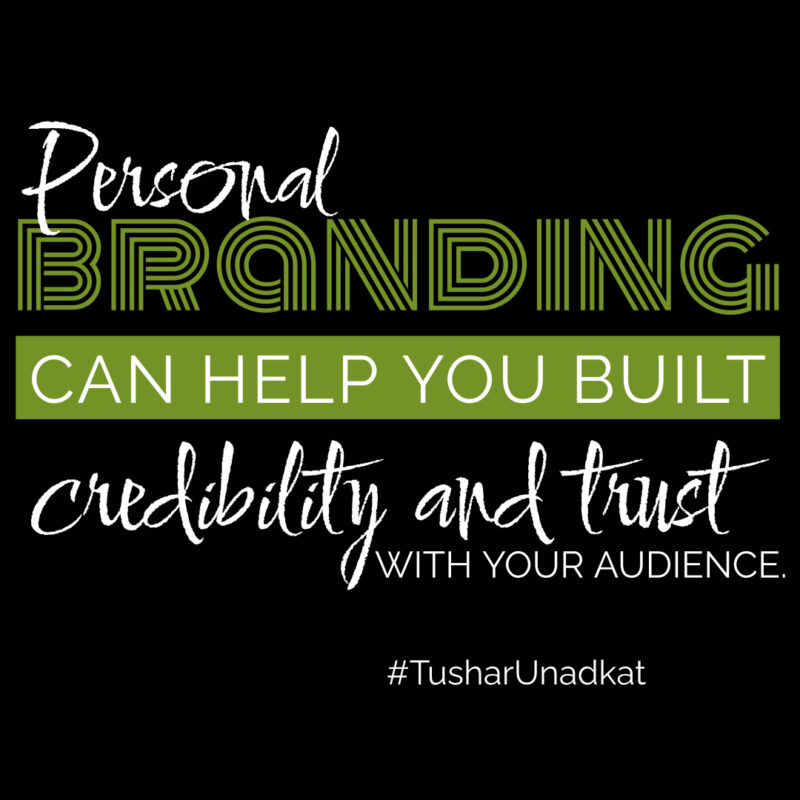How To Establish Your Personal Brand?
If you do not establish your brand, someone else will define it

Personal branding involves maintaining your reputation in an era of misinformation, disinformation, and long-lasting Google records, even if you are not a business owner. If you are going out on a date or attending a job interview, your potential partner or employer has probably searched for your name online.
Today, personal branding has become increasingly important for individuals looking to establish themselves in their respective fields. Personal branding refers to creating and maintaining a unique and recognizable image or identity that reflects one’s skills, values, and personality. In other words, personal branding is all about showcasing who you are and what you have to offer.
In the social media and digital communication age, personal branding has become an increasingly important aspect of career development and self-promotion. Another critical factor of personal branding is that it can help individuals build a dependable and loyal following. By consistently sharing high-quality content and engaging with their audience, individuals can cultivate a sense of trust and credibility with their followers. Doing this can increase visibility and influence, and impact within their industry.
However, building a strong personal brand requires excellent effort and strategic thinking. It involves defining your values, goals, and unique selling points and crafting a consistent and compelling narrative across all your communication channels.
There are several benefits to building a substantial personal brand. First and foremost, it can help you stand out in a competitive job market. Second, showcasing your unique skills, experiences, and accomplishments makes you an expert in your field and increases your visibility to potential employers and clients.
Personal branding can also help you build credibility and trust with your audience. You can establish yourself as an industry thought leader by consistently delivering valuable content and showcasing your expertise. You can increase opportunities for speaking engagements, media interviews, and other professional collaborations with your expertise.
Another key benefit of personal branding is that it can help you build a strong network of contacts and connections. By consistently engaging with your audience and sharing your knowledge and insights, you can attract like-minded individuals who share your interests and values. You can now attract new business opportunities, collaborations, and partnerships to help you achieve your professional goals.

So, how do you go about building a trustworthy personal brand? The first step is identifying your unique value proposition (UVP) – what sets you apart from others in your field. These values could be your expertise in a particular area, your experience working with a specific type of client, or your ability to deliver exceptional results in one industry.
Once you have identified your unique value proposition, the next step is to develop a consistent brand message and visual identity that aligns with your values and goals. The brand message can include creating professional marketing collateral for social media profiles, a website, and other outreach material showcasing your skills, accomplishments, and personality.
It is also important to consistently engage with your audience and build relationships with other professionals in your field. Relationship building involves:
- Sharing valuable content.
- Participating in online communities and forums.
- Attending networking events and conferences.
Furthermore, personal branding requires a commitment to ongoing learning and professional development. Establishing a strong brand and then resting on your laurels is not enough. Instead, individuals must continuously work to stay current on the latest trends and best practices in their industry and actively seek new growth and development opportunities.
In conclusion, personal branding has become increasingly important for individuals looking to establish themselves in their respective fields. By creating a unique and recognizable image or identity that reflects one’s skills, values, and personality, individuals can increase their visibility, credibility, and opportunities for professional growth. With the right strategy and consistent effort, anyone can build a reliable personal brand that helps them achieve their goals and stand out in a crowded marketplace.
SUMMARY
Improving your branding involves creating a complete and authentic image and reputation for yourself that helps you stand out from the crowd and be recognized as an expert in your field. Here are some tips to improve your branding:
- Define your brand: Identify your unique strengths, values, and expertise. What makes you stand out from others in your field? What are your core values? Once you have a clear idea of your brand, it will be easier to communicate it effectively.
- Develop your online presence: A robust online presence is essential in today’s digital age. Create a website or blog that showcases your expertise and provides value to your target audience. Use social media platforms to engage with your followers and share your knowledge.
- Create valuable content: Consistently create and share high-quality content that aligns with your brand. This can include blog posts, videos, podcasts, or social media posts that provide value to your audience and position you as an expert in your field.
- Network and collaborate: Attend industry events, join professional associations, and collaborate with other experts in your field. This will help you build your network and establish relationships with other professionals.
- Be consistent: Your brand should be consistent across all channels and platforms. Use the same profile picture, bio, and messaging across all your online channels to create a cohesive brand image.
Remember, building a strong personal brand takes time and effort. So, stay committed to your brand and keep working to improve it over time.




